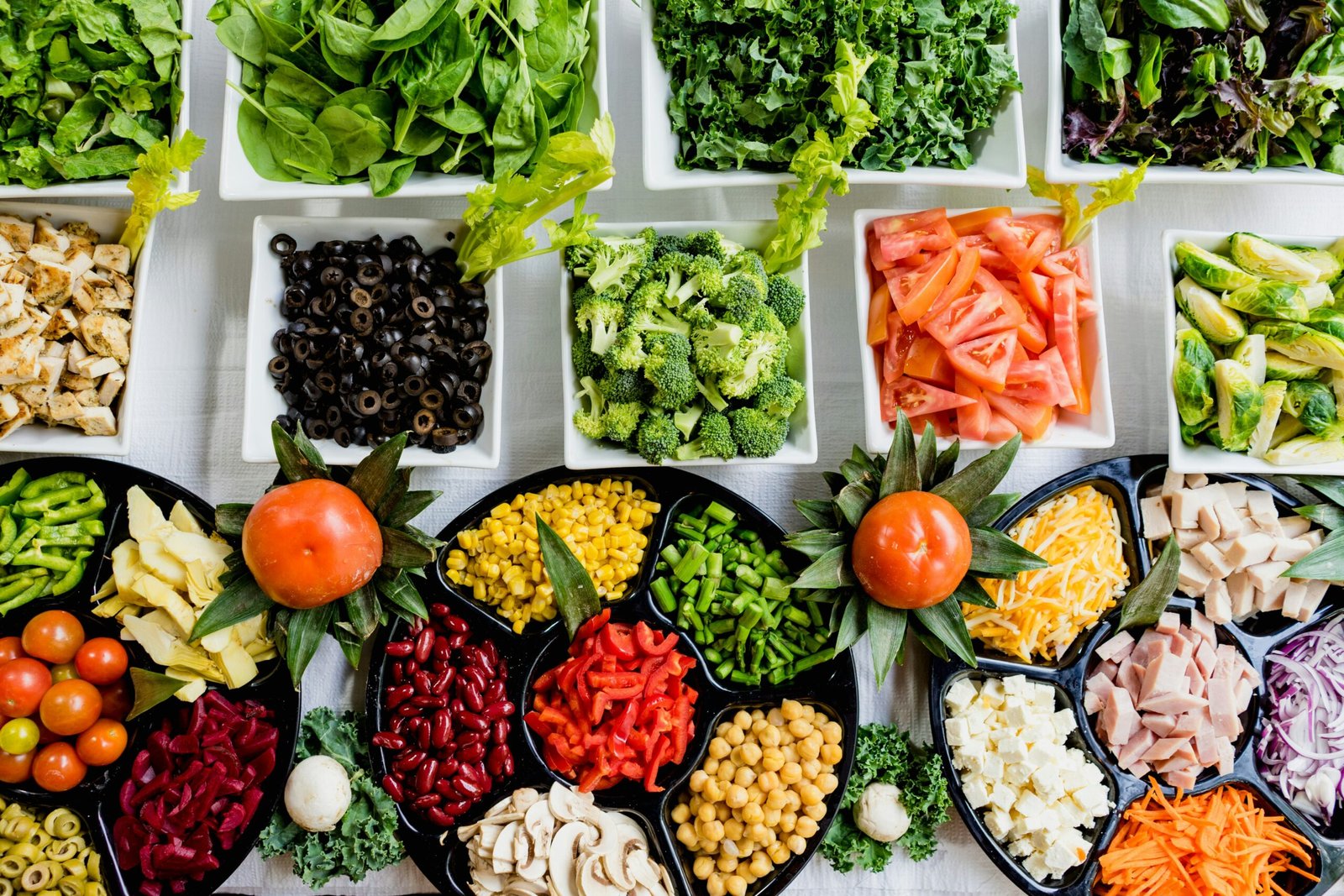One of the main reasons why eating more vegetables is important is because they are rich in essential nutrients. Vegetables are a great source of vitamins, minerals, and antioxidants that are necessary for the proper functioning of our bodies. For example, leafy green vegetables like spinach and kale are high in vitamin K, which plays a crucial role in blood clotting and bone health. Carrots and sweet potatoes are packed with beta-carotene, a precursor to vitamin A, which is important for vision and immune function.
In addition to their nutrient content, vegetables are also high in fiber. Fiber is a type of carbohydrate that is not digested by the body, but instead passes through the digestive system relatively intact. This is beneficial for several reasons. Firstly, fiber adds bulk to the diet, which can help promote feelings of fullness and prevent overeating. Secondly, fiber helps regulate bowel movements and prevent constipation. Lastly, a diet high in fiber has been linked to a reduced risk of developing chronic diseases such as heart disease, type 2 diabetes, and certain types of cancer.
Another benefit of eating more vegetables is their high antioxidant content. Antioxidants are compounds that help protect the body against damage from harmful molecules called free radicals. Free radicals are produced as a result of normal bodily processes, as well as exposure to environmental factors such as pollution and cigarette smoke. When free radicals accumulate in the body, they can cause oxidative stress, which has been linked to chronic inflammation and the development of diseases like heart disease and cancer. By consuming a variety of colorful vegetables, you can increase your intake of antioxidants and help protect your body against these harmful effects.
Now that we understand the importance of eating more vegetables, let’s explore some practical tips on how to incorporate them into your diet. One easy way to increase your vegetable intake is to include them in every meal. For example, you can add spinach or peppers to your omelet in the morning, have a salad with lunch, and include roasted vegetables as a side dish with dinner. Another tip is to experiment with different cooking methods and flavors to make vegetables more appealing. For example, you can try roasting vegetables with olive oil and spices to enhance their natural flavors, or sautéing them with garlic and herbs for added taste.
In conclusion, eating more vegetables is crucial for maintaining good health and preventing chronic diseases. They are packed with essential nutrients, fiber, and antioxidants that can benefit our overall well-being. By incorporating a variety of colorful vegetables into our diet and experimenting with different cooking methods, we can easily increase our vegetable intake and reap the numerous health benefits they offer.
In addition to these essential nutrients, vegetables also provide a wide range of other health benefits. For example, the high water content in vegetables helps to hydrate the body and maintain proper fluid balance. This is especially important during hot summer months or during intense physical activity.
Furthermore, vegetables are known to be low in calories and high in volume, which means they can help with weight management. By including a variety of vegetables in your meals, you can feel satisfied while consuming fewer calories. This can be particularly beneficial for individuals looking to lose weight or maintain a healthy weight.
Moreover, vegetables are a great source of phytochemicals, which are natural compounds that have been shown to have numerous health benefits. These phytochemicals act as antioxidants, anti-inflammatory agents, and even have potential anti-cancer properties. Some examples of phytochemicals found in vegetables include sulforaphane in broccoli, lutein in spinach, and quercetin in onions.
Another advantage of including vegetables in your diet is their potential to reduce the risk of chronic diseases. Research has consistently shown that individuals who consume a higher amount of vegetables have a lower risk of developing conditions such as heart disease, stroke, type 2 diabetes, and certain types of cancer. This is thought to be due to the combination of nutrients and phytochemicals found in vegetables that work together to promote overall health and well-being.
Lastly, vegetables are incredibly versatile and can be enjoyed in a variety of ways. They can be eaten raw in salads, steamed, roasted, grilled, or sautéed. They can be used as a base for soups, stews, and stir-fries, or even incorporated into smoothies and juices. With so many options, it’s easy to find delicious and creative ways to include vegetables in your daily meals.
In conclusion, vegetables are not only delicious but also incredibly nutritious. They provide a wide range of essential vitamins, minerals, and dietary fiber, while also offering numerous health benefits. By including a variety of vegetables in your diet, you can support your overall health and well-being, reduce the risk of chronic diseases, and enjoy a variety of delicious flavors and textures.
5. Enhanced Immune Function
Vegetables are packed with essential vitamins, minerals, and antioxidants that can strengthen the immune system. Vitamin C, found in vegetables like bell peppers and broccoli, is known to boost immune function and help the body fight off infections. Additionally, vegetables like spinach and kale are rich in vitamin A, which plays a crucial role in maintaining the health of the skin and mucous membranes, acting as a barrier against pathogens.
6. Improved Eye Health
Many vegetables, particularly those with vibrant colors like carrots, sweet potatoes, and spinach, are excellent sources of beta-carotene and other antioxidants that are beneficial for eye health. These antioxidants help protect the eyes from oxidative stress and reduce the risk of age-related macular degeneration and cataracts. Including a variety of vegetables in your diet can help maintain good vision and promote overall eye health.
7. Enhanced Brain Function
The nutrients found in vegetables, such as folate, vitamin K, and antioxidants, play a vital role in brain health and function. Folate, found in leafy greens and legumes, is essential for the production of neurotransmitters that regulate mood and cognitive function. Vitamin K, found in vegetables like broccoli and Brussels sprouts, has been linked to improved memory and cognitive performance. Additionally, the antioxidants in vegetables help protect brain cells from damage caused by oxidative stress, potentially reducing the risk of neurodegenerative diseases like Alzheimer’s.
8. Improved Skin Health
Vegetables are a great source of nutrients that promote healthy skin. The vitamins and antioxidants found in vegetables can help protect the skin from damage caused by free radicals and environmental factors, such as UV radiation. Additionally, vegetables like cucumbers and tomatoes are high in water content, which can help hydrate the skin and improve its overall appearance. Including a variety of vegetables in your diet can contribute to a radiant and youthful complexion.
9. Increased Energy Levels
Vegetables are rich in complex carbohydrates, which are the body’s preferred source of energy. Including a variety of vegetables in your meals can provide a steady release of energy throughout the day, helping to prevent energy crashes and fatigue. Additionally, the vitamins and minerals found in vegetables play a crucial role in energy production and metabolism.
10. Improved Overall Nutritional Intake
By incorporating more vegetables into your diet, you can significantly increase your intake of essential nutrients. Vegetables are a great source of vitamins, minerals, and dietary fiber that are necessary for optimal health. They provide a wide range of nutrients, including vitamin C, vitamin A, vitamin K, potassium, magnesium, and folate. Including a variety of vegetables in your meals ensures that you are getting a diverse array of nutrients that support overall health and well-being.
In conclusion, adding more vegetables to your diet can have a multitude of health benefits. From improved digestive health to enhanced immune function and brain health, vegetables are a nutrient powerhouse that can support overall well-being. So, make it a point to include a variety of vegetables in your meals and reap the rewards of a healthier lifestyle.
Practical Tips for Eating More Vegetables
Now that we understand the importance of eating more vegetables, let’s explore some practical tips for incorporating them into your diet:
1. Include Vegetables in Every Meal
Make it a habit to include vegetables in every meal. Whether it’s adding spinach to your morning omelet, having a side salad with lunch, or including a variety of roasted vegetables with dinner, aim to have at least one serving of vegetables with each meal. By doing so, you’ll not only increase your nutrient intake but also add color and flavor to your plate.
2. Snack on Vegetables
Instead of reaching for processed snacks, opt for fresh vegetables as a snack. Cut up some carrots, bell peppers, or cucumber slices and enjoy them with a healthy dip like hummus or Greek yogurt. This will not only increase your vegetable intake but also provide you with additional nutrients and fiber to keep you feeling satisfied between meals.
3. Experiment with Different Cooking Methods
Don’t limit yourself to just steamed or boiled vegetables. Experiment with different cooking methods to add variety and enhance flavors. Try roasting vegetables with olive oil and spices, grilling them for a smoky flavor, or sautéing them with garlic and herbs. These cooking methods can bring out the natural sweetness and textures of vegetables, making them more enjoyable to eat.
4. Explore New Recipes
Expand your culinary horizons by exploring new vegetable-based recipes. Look for creative ways to incorporate vegetables into your favorite dishes. For example, you can add grated zucchini or carrots to muffin or pancake batter, or use cauliflower rice as a low-carb alternative to regular rice. By trying out new recipes, you’ll discover exciting ways to incorporate vegetables into your meals and make them the star of the dish.
5. Buy Seasonal and Local Produce
Seasonal and local produce is not only fresher but also tends to be more flavorful. Visit your local farmers’ market or join a community-supported agriculture (CSA) program to get access to a variety of locally grown vegetables. This can also be a great way to support local farmers and reduce your carbon footprint. Additionally, buying seasonal produce allows you to enjoy vegetables at their peak freshness and nutritional value, ensuring that you’re getting the most out of your meals.
By following these practical tips, you can easily incorporate more vegetables into your diet and reap the numerous health benefits they provide. Remember, small changes can make a big difference, so start by making one or two adjustments and gradually increase your vegetable intake over time. Your body will thank you for it!







